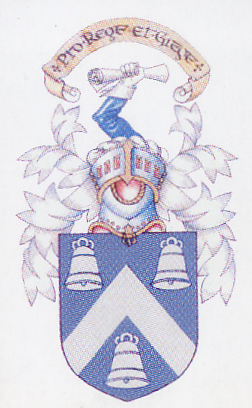| Charles Lapworth was born in Faringdon,
Berkshire and trained as a school teacher in Oxfordshire, his main
interests at that time being literature, history, art and music. His
first post, in 1864, was in Galashiels and in 1875 he was appointed
to Madras College in St Andrews. Between 1875 and 1881 he was
assistant English master at Madras College. Lapworth's interest in
geology started shortly after his move to Scotland and, although
largely self taught in the subject, he soon began to make
significant contributions towards unravelling the geology of the
Southern Uplands. He published his famous paper on the Moffat
Series, centred around his work at Dob's Linn, near Moffat. All
later writings on graptolites were largely based upon the results
obtained by Lapworth. In 1879 Lapworth suggested the insertion of a
central division of the Lower Palaeozoic rocks and that it should be
called the "Ordovician System". In this way a long-standing
controversy was peacefully solved and the suggestion was generally
accepted. He left St Andrews in 1881 to take up the Chair of Geology
at Birmingham. |
 |
Lapworth received many awards for his pioneering work and contributions
to geology. In 1891, he received the greatest scientific accolade when
presented the Gold Medal of the Royal Society. While in 1899, he received
the highest award of the Geological Society of London, the Wollaston
Medal, in recognition of his outstanding work in the Southern Uplands, and
Northwest Highlands of Scotland. The Lapworth Archive, housed in the
museum, contains a remarkably complete record of all areas of his research
work and teaching.
| A plaque at the front of the building in
South Street commemorates his geological success. |
 |
|

